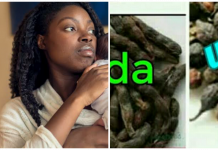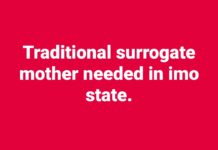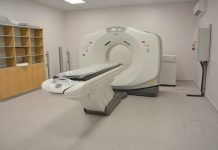Ignorance or Mere Opposition to Change? My Candid Observation as a NYSC doctor in Bayelsa.
Peter Drucker, one of the great management scholars of the twentieth century opined in his classic, Managing in Turbulent Times, “the greatest danger in times of turbulence is not the turbulence; it is to act with yesterday’s logic.” Although the purpose of his book was to help existing and emerging executives navigate through the storms of the ever dynamic business ecosystem, wisdom from this piece best summate my assessment of the behavioural tendencies of most locals in a number of isolated riverine communities in the hinterlands of southern Nigeria (Bayelsa), one of which I now currently work as part of the mandatory national youth service scheme. My stay as a NYSC doctor in Bayelsa was more or less aadventurous and intriguing.. .
Problems identified
Prominent among the numerous challenges of these communities are lack of access to healthcare facilities and failure to utilize them in those privileged to have functional ones. Ensuring access to healthcare is a particularly daunting task in these riverine communities because of their geography (composed of numerous isolated islands with few hundreds of people separated by a large expanse of waters) hence a clinic cannot effectively serve two small communities.
Also, where facilities are actually built by government or oil companies operating in these areas, adequate manpower to effectively run these health centres poses another challenge due to poor incentives and dearth of other basic amenities such as mobile network, power supply which encourage residency.
In these communities traditional birth attendants and masseurs are highly sought after, while patent medicine dealers are treated as rock stars. The reason for this is not farfetched; they have for decades tried in their own way to bridge the gap of healthcare no matter how rudimentary and fatal conventional medicine thinks their interventions may sometimes turn out to be. Therefore, it is not surprising to see newly constructed hospitals and health centres largely unutilized when government finally decides to live up to its constitutional responsibility of providing healthcare. The irony of this situation is that these health centres are provided following agitation by the local populace, yet they don’t fully access it.
Clinical Cases that touched me….
The last couple of days have been really sobering due to the outcome of two paediatric emergencies we attended to in the hospital. It’s usually a traumatic experience when patients especially children die from totally preventable illness such as malaria, diarrhoea and pneumonia. In the short while working in this community, I have had a number of such awful encounters. These last two stood out for some reasons.
The first case was Baby X, 4 days old that was brought in by her grandmother with the compliant of difficulty breathing since first day of life. The first thing that caught my attention was how the baby was rapped, concealing his entire body including his face. Next, was the absent of the mother. On probing, I was told that it’s the norm in the community that both baby and mother are not supposed to be seen outside within the first two weeks of delivery to protect them from evil eyes. Eureka, that’s why each time we discharge newly delivered women home they don’t leave till in the dead of the night.
After taking history from the mother, examining and carrying out series of tests on the baby, we realised that she had a serious infection she contracted from the mother during delivery and as one would predict, she delivered at home and did not receive any form of antenatal care. We started the baby on some medications through the veins, started oxygen. Just about few hours on admission, the grandmother came inquiring when her grandbaby will get better.
As doctors always do, I reassured and explained we will do our possible best. By the time I arrived the ward the next morning, the bed was empty. I was down, but why did the nurse on duty not call me to inform me, what must have happened, he was getting better before I went to sleep, did I miss anything, as all these thoughts were pacing through my minds, the nurse arrived.
To my disbelief, they had absconded in the middle of the night and took the child to a local masseurs for massaging, I wept. Few days later, expectedly, I heard that the baby has passed on.
The second was a 10 years old girl by name Tari (not real name) from a neighbouring community totally devoid of any healthcare facility. She was cheerful even in ill-health, spoke ijaw fluently, her English wasn’t so impressive but sufficient for communication.
She has been ill for 3 weeks; despite various medications from patent drugs dealers her body was as hot as a furnace. After our initial assessment, we started her on some medications and transfused her with one pint of blood donated by her father. Although her symptoms initially abated after the first day, they resurfaced on the third day on admission. We re-evaluated and discovered she most likely has cancer of the blood cells. By this time, her blood level was severely low and her heart began to fail despite blood received from her father two days back.
The parents were unable to promptly provide a blood donor, so one of our nurses who had similar blood group donated. This gave little respite; we counselled the parents on the condition, the need for urgent care and referred her to the Federal Medical Centre (FMC) in the state capital, as our facility would be unable to manage such condition. To my greatest bewilderment, I was reliably informed that the parent did not take her to the FMC, but rather to a local masseur for massaging just like baby x.
As the condition has high mortality, am not certain if she would have survive even if the parents had taken her right away to FMC, but at least that would have given her the opportunity to fight. As I conclude my thoughts in this article, I received the painful news that she was lost to the cold hands of death.

My experience as a NYSC doctor in Bayelsa
There are striking similarities between baby x and tari’s stories. They both presented to the hospital a bit late, received interventions with some degree of improvement; their parents had substantial interactions with healthcare personnel, yet opted to discontinue hospital care for a local masseur.
Who and what is responsible for these challenges? The people, perhaps have refused change
What could be responsible for this, is it ignorance, pressures from families and friends or mere resistance to changing the status quo of patronizing traditional healers. Whatever maybe responsible, it’s most unfortunate. The words of Peter Drucker re-echoes, “the greatest danger in times of turbulence is not the turbulence; it is to act with yesterday’s logic.”
Thank you.
This article on my experience as a a Nysc doctor in Bayelsa was written by:
Oshodin Osamudiamen
(MBBS, Benin)
























